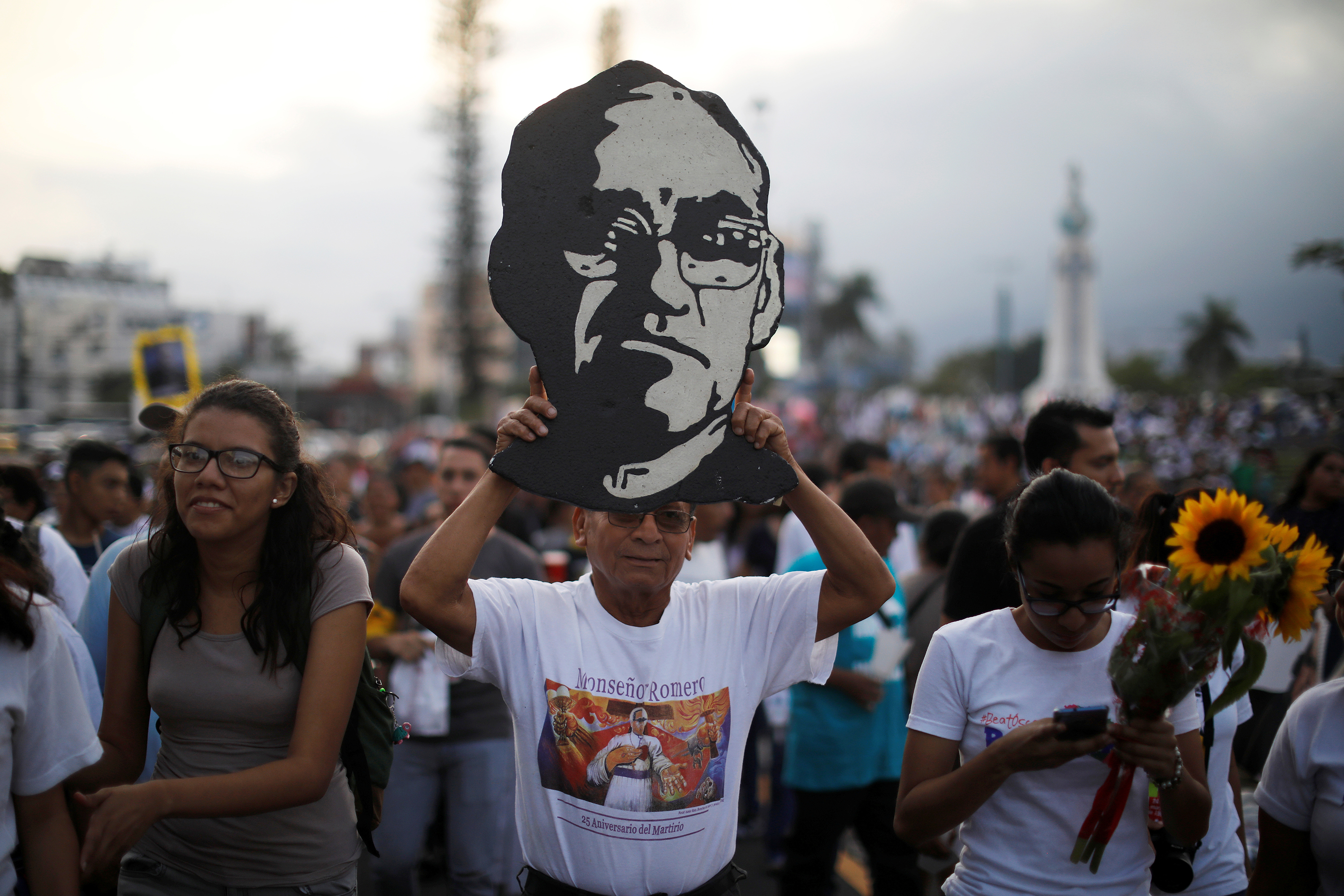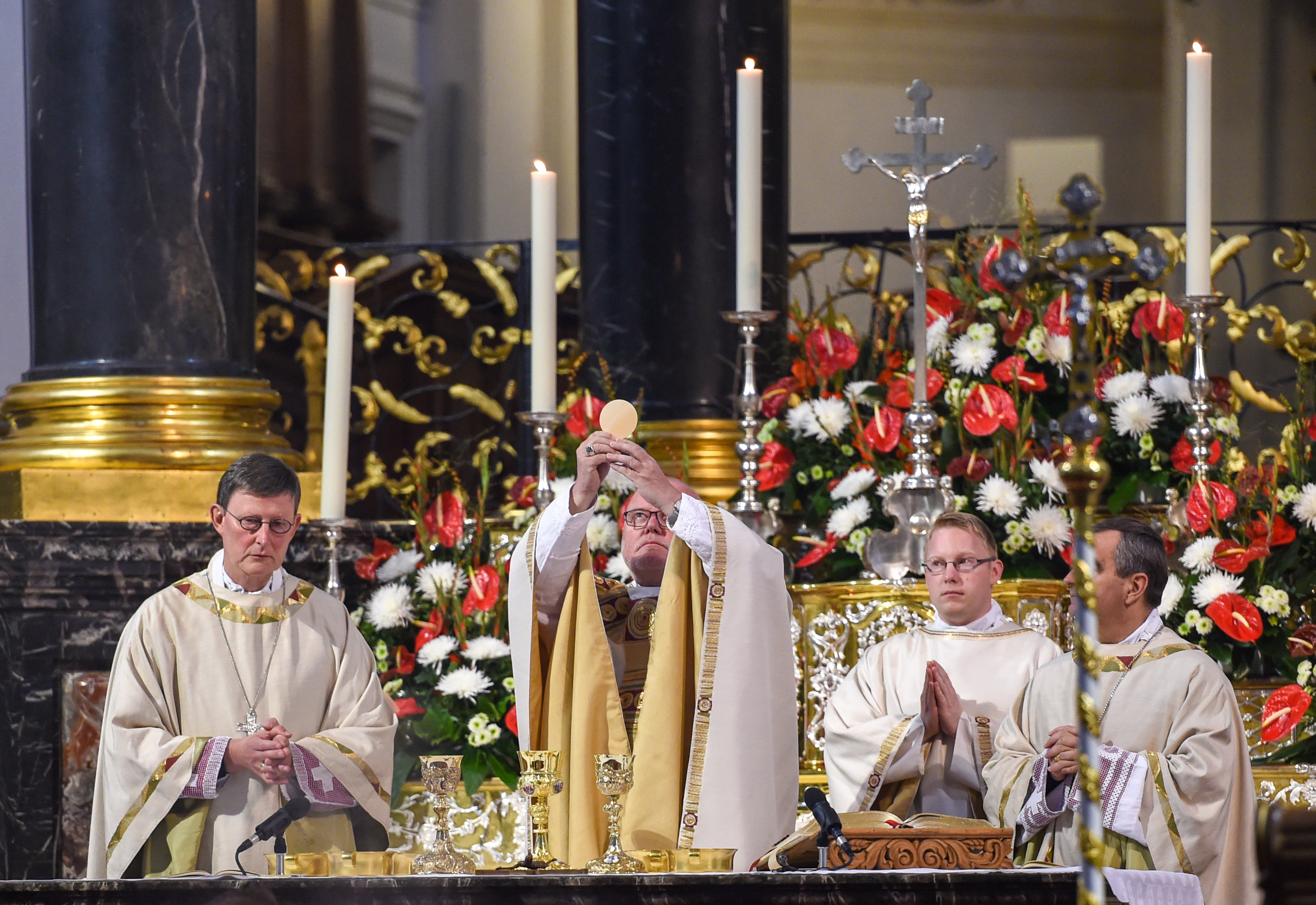Pope Francis has asked the German bishops to aim for a “unanimous” agreement over their proposals to loosen restrictions on giving communion to Protestants married to Catholics.
According to a Vatican statement issued following a summit between senior figures in the episcopal conference and officials in the Roman Curia, the Pope “appreciates the ecumenical commitment” of the bishops but wants them to iron out internal disagreements and come to a decision that is "as unanimous as possible".
Three-quarters of the German hierarchy voted in favour of a pastoral handout, "To Walk with Christ, In the Footsteps of Unity: Mixed Marriages and Common Participation in the Eucharist”, which would give greater access to communion for Protestant spouses of Catholics. But seven bishops, including Cardinal Rainer Woelki, disagreed and asked for the Pope to intervene.
As a result a delegation of German bishops including Cardinal Reinhard Marx, president of the German Bishops’ Conference, and Cardinal Woelki met on 3 May with Archbishop Luis Ladaria, the prefect of the Congregation for the Doctrine of the Faith, and Cardinal Kurt Koch, president of the Pontifical Council for Promoting Christian Unity. Officials from both sides joined the meeting.
The discussions, according to the statement released afterwards, focussed on “the relationship of between faith and pastoral care, its relevance for the universal Church and its juridical dimension,” while Archbishop Ladaria is to brief Francis on the deliberations.
The German bishops’ move seeks to build on Church teaching, which already allows for the sacraments to be given to Christians from other denominations in certain circumstances.
“It is a source of joy to note that Catholic ministers are able, in certain particular cases, to administer the Sacraments of the Eucharist, Penance and Anointing of the Sick to Christians who are not in full communion with the Catholic Church but who greatly desire to receive these sacraments, freely request them and manifest the faith which the Catholic Church professes with regard to these sacraments,” Pope St John Paul II wrote in his 1995 encyclical “Ut Unum Sint”.
This Pope, who has made numerous ecumenical gestures such as travelling to Sweden to mark the 500th anniversary of the reformation, is on record telling the Lutheran spouse of a Catholic to undertake her own discernment over whether or not to receive communion when they attended Mass together.
The intercommunion question also brings to light the question of Church decentralisation and the authority of bishops’ conferences. Francis is keen to devolve power to local churches making it clear in “Amoris Laetitia”, his family life document, that “not all discussions of doctrinal, moral or pastoral issue” need to be settled by Rome, while in “Evangelii Gaudium”, the manifesto for his papacy, he called for a bishops’ conferences to be given “genuine doctrinal authority”.
But under current rules, set out by John Paul II’s document “Apostolos Suos”, doctrinal declarations by bishops’ conferences need to be approved unanimously in order to have magisterial authority.
The Pope and his council of cardinals, of which Cardinal Marx is a member, have discussed the status of bishops’ conferences including a “re-reading” of “Apostolos Suos” in light of Francis' call for a “healthy decentralisation” in the Church.
Some argue the German bishops' plan is a pastoral rather than doctrinal initiative, but by urging them to reach a unanimous agreement and involving the Congregation for the Doctrine of the Faith, Francis appears to see it as the latter. Given that proposals for remarried divorcees to be given communion in “Amoris Laetitia” stirred up such heated opposition in some quarters the Pope will be looking to avoid signs of divisions.
Nevertheless, the restrictions on communion for members of other Christian denominations married to Catholics remain a point of puzzlement and tension, particularly in countries such as Germany and the United Kingdom where Catholics often marry Christians from other denominations.
A famous case was Tony Blair who in 1996 was told by Cardinal Basil Hume, then Archbishop of Westminster, to stop receiving communion when attending Mass with his family.
At that time the former Prime Minister was an Anglican and the Leader of the Opposition. Only after he left office was Blair was received into the Catholic Church.
Pic: Cardinal Rainer Maria Woelki of Cologne, Germany, and Cardinal Reinhard Marx of Munich elevate the Eucharist during Mass in the cathedral in Fulda, Germany, Sept. 23, 2014. Six German bishops have met with Vatican officials to discuss German plans to allow greater access to the Eucharist for Protestants married to Catholics. (CNS photo/Jorg Loeffke, KNA)



 Loading ...
Loading ...